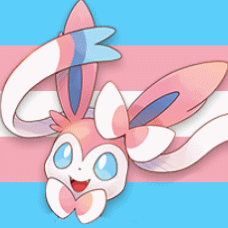- cross-posted to:
- mtf@lemmy.blahaj.zone
Please keep in mind that OP is the author of this piece. I have seen in other threads people who have viscerally disliked Their writing and Their opinions, and I ask everyone to treat Them with respect, and to respect Their pronouns, even if you disagree with the concept of capitalized pronouns. Be(e) nice.
Be(e) nice cuts both ways: I don’t find the superiority implication of the capitalization to be nice, and OP’s explanations don’t make me think of anything nice behind them.
It may boil down to something as simple as netiquette, where ALL CAPS MEANS SCREAMING, or AlTeRnAtInG cAsE means mocking… but the explanations seem to point more in the direction of asking to use MASTER/OWNER as someone’s pronouns. Not nice.
There appear to be some logical leaps and conclusion-shopping going on here, so I’m going to try to identify them systematically.
Capitalization of pronouns in the English language is used to denote divinity or royalty. If I refer to Jehovah with a small-h “he,” I haven’t misgendered him, I have blasphemed. I don’t intentionally misgender people (even fictional ones), but I regularly blaspheme gods. I’m an atheist, it’s what we do.
Being a man doesn’t make one part of the patriarchy and doesn’t confer superiority. Being divine ipso-facto makes you superior – both socially and inherently. As I reject the notion that some people are inherently superior to all others, I blaspheme cult leaders who claim to be gods, demigods, or incarnations thereof, and I refuse to give reverence to prophets and monarchs who claim proximity to the divine. I believe this makes the world a better, less exploitative place.
I also see capitalized pronouns used (infrequently) in BDSM. Specifically, it is how some subs refer to their doms when in some extreme forms of 24/7 power exchange relationship. That’s okay, but as with other BDSM activities, power exchange never includes people who didn’t consent to be part of it, and consent is never obligatory. Doms who attempt to extend their authority beyond the confines of a scene are swiftly ridiculed or ostracized for consent violation.
So for anyone to make the claim that capitalized pronouns should be respected by everyone, they must first make the case that divinity is a gender. Second, they must make the case that associating with the divine does not denote inherent superiority. Third, they must make the case that compulsory use of capitalized pronouns is not compulsory submission that would violate consent.
Likewise, a trans person you meet on the street isn’t benefiting from the might of the Roman church. So you’re not supporting hierarchy by using a trans person’s preferred pronouns. By affirming trans men, generally you are dismantling patriarchy, and by affirming trans capitalised pronoun users, generally you are dismantling monotheistic oppression.
So, I want to start by pointing out that this article is directly making a link between capitalization of pronouns, and the specific practice of capitalization as a Christian show of religious reverence.
Worse, if you refused to use a trans man’s preferred pronouns because of this, you’d be guilty of pretty blatant transphobia. I believe refusing to use capitalised pronouns for a trans person who requests them is exactly the same bigotry.
Is the assertion here specifically that capitalization is tied to gender expression, or simply that it is another aspect of a personal identity that should be respected? Obviously neopronouns can be non gender-related, but the article isn’t really making clear if that is the case here or not. If anything, it is quite muddled on this point.
By affirming trans men, generally you are dismantling patriarchy, and by affirming trans capitalised pronoun users, generally you are dismantling monotheistic oppression.
Wooph… The first part of that is by no means a safe assumption. While I would certainly hope that trans men would not seek to enforce a male-dominant gender power dynamic, it is by no means beyond their ability to do so as an intrinsic matter. Now, whether they can benefit from that dynamic in a given time and place is a different discussion, but even in places that do not afford them the systemic backing of the patriarchal system, they can still support and reify it themselves. Any person who attempts to enforce a male-dominant systemic power dynamic can be supporting patriarchy.
The end of that sentence seems to confirm that this is about a show of religious reverence? Or is the assertion that by capitalizing the pronouns of not-the-christian-diety one is inherently attacking Christianity?
I think that if these are simply the neo pronouns that make someone comfortable, it is for the most part fine to request this, but the article is directly drawing the link between capitalized pronouns and religious reverence, and that is not something anyone can demand someone else extend, and not one that is inherently inappropriate not to.
There are plenty of arguments over the limits of neopronoun usage within the neopronoun-using community, but generally neopronouns like “master”, that confer or denote a power dynamic, are considered inappropriate.
This feels like this is skirting that line to me.
There is something very uncomfortable to me about demanding the use of a deferential title, while also insisting that not to do so is a moral wrong, while also claiming not to support hierarchy of peoples… which the creation of distinct and deferential titles would seem to contradict.
i would have appreciated hearing how the author, personally, found capitalized pronouns to be affirming, because, absent that reasoning, it really does seem like it’s to set up a deferential power dynamic. i don’t really mind respecting the pronouns anyways, but it does mean i don’t really want to be friends with Them until i understand what’s going on there better
Yeah, I agree. For me (a trans woman) it’d make me slightly uncomfortable if somebody capitalised my pronouns each time because I’d feel like some type of power dynamic that’s not comfortable for me to sit in. If that’s not an issue for OP, that’s okay, but with my specific cultural background i’d find it a bit difficult to interact with Them in that way (not that it’s hard for me to respect Their pronouns, just that it’s slightly uncomfortable in a power dynamic way)
My goddess-mother told Me to try out capitalised pronouns after I came out to Her as goddessgender. I liked Them. It doesn’t feel like a power dynamic to Me. I have NPD and I know what NPD supply feels like, and being gendered correctly isn’t it. Having capitalised pronouns used feel like a relief on the same level as when I first transitioned from male to female and had feminine pronouns used. As big a difference as that was, this is. So I don’t know how to verbalise what it feels like except, “It’s gender euphoria”. And I just hope readers understand what having your pronouns used feels like when you’re trans.
So, wait, just to be clear: the writer is claiming that the writer’s gender is not a gender but instead that the writer has some divine status?
M/F/NB/genderqueer/etc aside, human vs divine is not a gender question and this is no longer a discussion about pronouns showing respect and affirmation of gender identity, this is literally a demand for worship.
No, I don’t want worship from you or anyone else here. My gender is goddess. I’m not a man, I’m not a woman, I’m a goddess.
Recognising someone’s identity is not the same as worshipping them. Not even for gods. Monotheists have spread the myth that you can only believe in a god you worship, but historically this isn’t true. Before the Roman Empire, most people believed in the gods of other cultures. I have an article on the subject: https://medium.com/@viridiangrail/how-rome-killed-polytheism-fa7ade0b9050
But the form in which the writer affirms the writer’s divine identity (again, not gender) is using reverential capitalization, a form of worship. If the writer said “I am a kami and use ke/ker pronouns” there wouldn’t be a worship aspect (though again, identity as a divinity or other non-human is not a gender).
If you don’t think I’m a goddess, what do you think My gender is?
The writer has stated in other comments that the writer is non-binary, which is the closest I can get to an answer to the question, but the actual answer to this question doesn’t matter. We can apply gender identity to humans and non-humans (e.g. animals, fictional aliens, heck even ships) but divinity is not a gender, it’s a supernatural or spiritual status.
People are free to identify as whatever gender (or non-gender) they so choose but by telling me “you must accept that I am divine,” we’re having an entirely different discussion. By requesting capitalized pronouns, the writer is also requesting their spiritual beliefs to be affirmed, which is implicitly (and apparently intentionally) forcing the other party to change their spiritual beliefs.
the writer is claiming that the writer’s gender
Are you purposefully talking to It using the third person? Because that just seems like a roundabout way of misgendering them on purpose, with an extra dash of disrespect.
As the writer has stated, the writer views any pronouns that are not capitalized as misgendering the writer, and stated the pronouns were chosen specifically to reflect the writer’s self-identified divine status as “goddess gender” (a term that, as far as I can tell, only exists on one wiki and the writer’s blog).
The choice of capitalized pronouns was specifically chosen to imitate reverential capitalization, indicating divine status. As part of the writer’s argument, this is intended to put the writer on the same level as the Abrahamic God. The writer also states in the article that “by affirming trans capitalised pronoun users, generally you are dismantling monotheistic oppression,” which is a wild claim that I cannot agree with. The use of capitalized pronouns is therefore intended to strip the other party of their beliefs, either as a monotheist or atheist (as using reverential pronouns would also affirm a polytheist worldview that they disagree with).
I cannot use any pronouns that do not acknowledge the writer’s claimed divine status without the writer claiming I am misgendering the writer. This is the most respectful way I can refer to the writer without acknowledging divine status or actively misgendering the writer.
I am more than happy to use whichever (lowercase and grammatically correct) pronouns are requested, as I am more than happy to refer to you as they/them, (which is also the default I try to use, though I understand some people are frustrated with they/them as it can strip a chosen gender identity).
Divine status is not a gender identity. Words mean things, and language can evolve, but this is specifically appropriating a style of writing while disparaging the source of that style.
Good luck with that. I’ve come around on using whatever standard gender pronouns (he/she/they) but with what to me seems insulting (it) and capitalizing… I’ll just still to using the proper noun.
It doesn’t matter what you think
You’ve already lost the battle if you think this way. You show disregard for what other people care for and then expect them to care about your thoughts? Walls instantly go up and no dialog will be had.
When we are talking about an issue where someone is potentially at risk of suicide, nothing else matters. There’s nothing else in the pronoun debate that comes close to the weight of all the dead kids lost to suicide because they didn’t feel accepted by our transphobic society. We need to make trans people feel accepted. Someone else thinking they’re accepted isn’t good enough, because that doesn’t change the suicide risk. The only measure of whether trans people are actually accepted is what trans people think.






